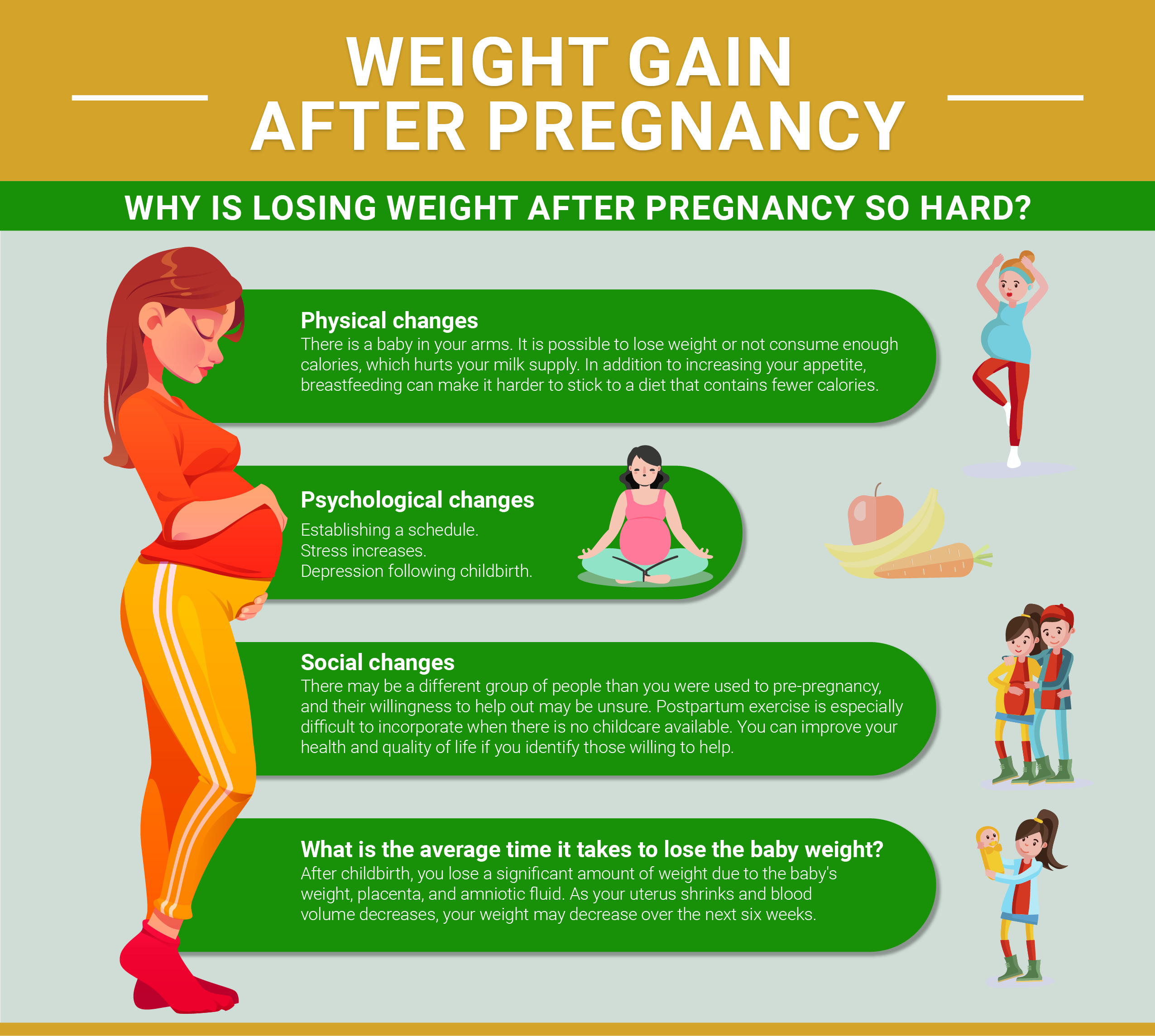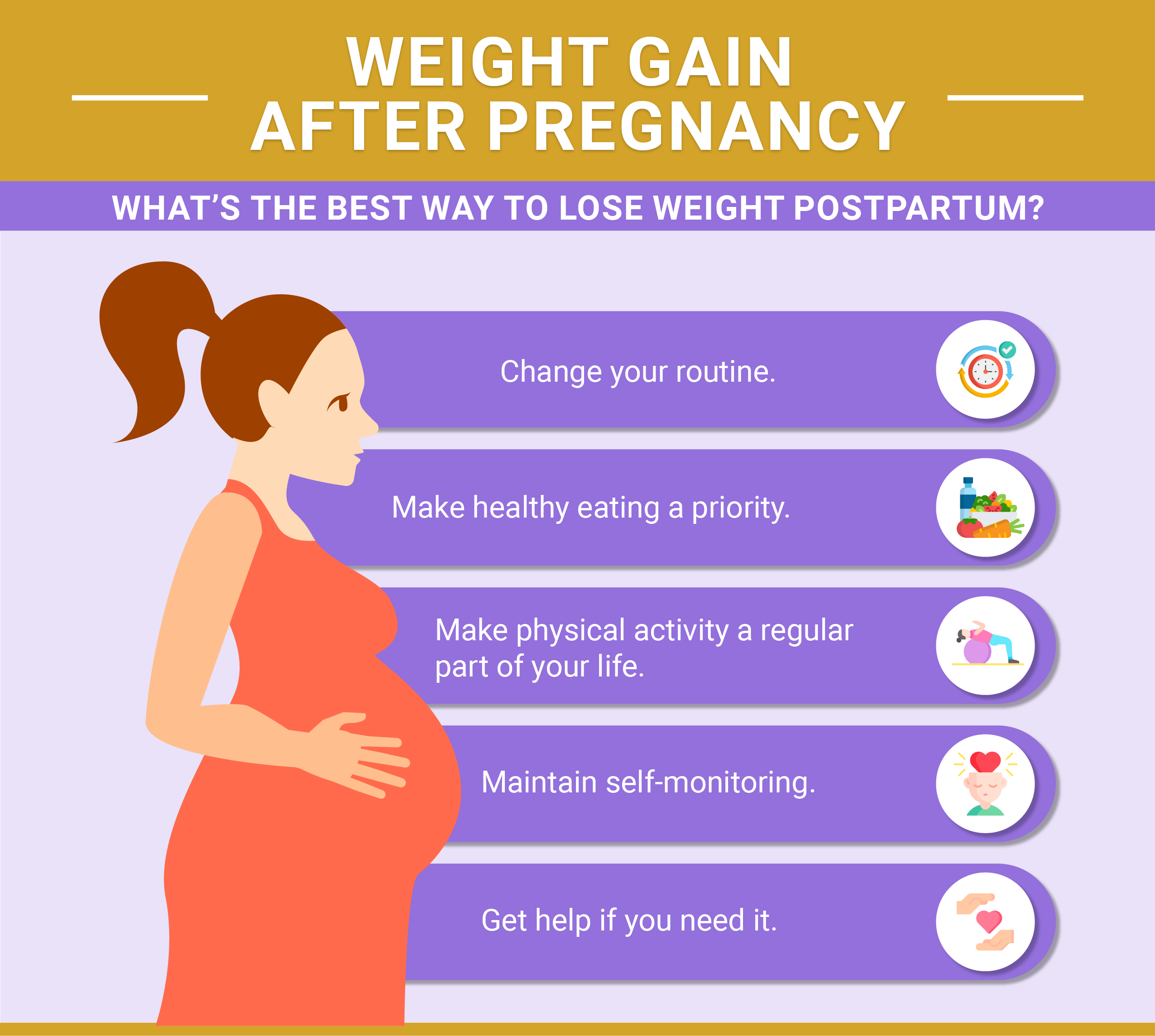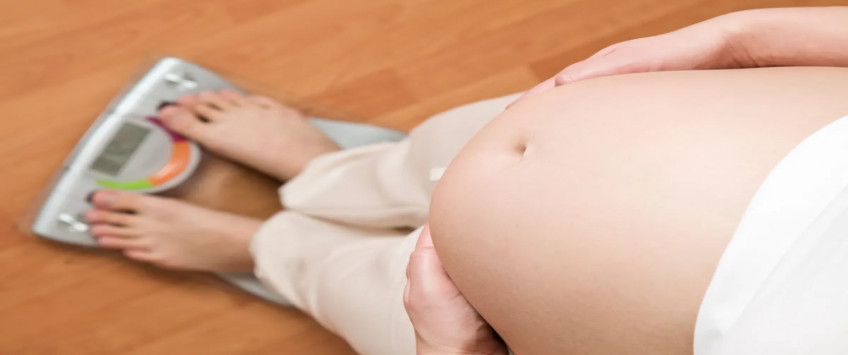Weight Gain after Pregnancy: Why it Happens & What You Can Do
You can't overstate how much your life changes when you have a baby. A life event that is both joyful and momentous but also changes you physically, psychologically, and socially. Postpartum weight gain or difficulty losing the baby weight is a common physical change we experience. It is one of the most difficult things to lose baby weight, and yet research shows that approximately 75% of women gain weight after pregnancy than they did before. At a time when we're both excited and stressed, it's the perfect combination! Can we help? Do pregnant women always gain weight after giving birth? I want to discuss this with you.
Why is losing weight after pregnancy so hard?
You are less likely to lose weight after pregnancy due to the physical, psychological, and social changes that occur immediately after childbirth. Here are some things to consider:

Physical changes:
- There's a lot on your plate. In the immediate postpartum period, you don't have much energy for meal preparation or physical activity, given that you're up every 2-3 hours to feed your baby.
- There has been a change in your body. Your body must fully recuperate and heal in the first few weeks following delivery. Your workouts may differ a bit from pre-pregnancy once your muscle mass and stamina are regained during pregnancy and the postpartum recovery period.
- There's a craving for carbs in your body. As we get used to eating certain foods after 9 months of "eating for two", it can be difficult to give them up. High-refined carbs make us want them more, and it is hard for our brains to retrain themselves not to crave those unhealthful foods we used to eat regularly.
- There is a baby in your arms. It is possible to lose weight or not consume enough calories, which hurts your milk supply. In addition to increasing your appetite, breastfeeding can make it harder to stick to a diet that contains fewer calories.
- Diabetes during pregnancy. Following data from the CDC, 2 - 10% of pregnant women have gestational diabetes annually. Insulin therapy can sometimes be prescribed for gestational diabetes. Due to insulin's side effects, weight gain can sometimes accompany pregnancy, making postpartum weight loss more difficult.
Psychological changes:
- Establishing a schedule. You become completely absorbed in caring for your newborn, and everything else becomes secondary. As a mother, you face this challenge every day.
- Stress increases. Taking care of an infant increases your time demands, but the stress of doing so should not be underestimated. Increased mental stress can increase appetite and poor eating behaviours, which may complicate weight loss after pregnancy.
- Depression following childbirth. One in eight women experience symptoms of postpartum depression, according to statistics from the CDC. Postpartum weight retention is one of the complications of this serious medical condition. Weight loss becomes more difficult when negative emotions affect what we eat, why we eat, and how we exercise.
Social changes:
- Changing support system. A strong support system after having a baby might be more important than ever. There may be a different group of people than you were used to pre-pregnancy, and their willingness to help out may be unsure. Postpartum exercise is especially difficult to incorporate when there is no childcare available. You can improve your health and quality of life if you identify those willing to help.
- Obligations financially. Kids are expensive; there's no denying that. The grocery budget for healthy foods has likely become tighter as the cost of diapers, food, and childcare increases.
When you're frustrated with the scale, keep these changes in mind when trying to lose weight after pregnancy. Don't be too hard on yourself. Your baby just entered the world! With that comes many changes.
What is the average time it takes to lose the baby's weight?
After childbirth, you lose a significant amount of weight due to the baby's weight, placenta, and amniotic fluid. As your uterus shrinks and blood volume decreases, your weight may decrease over the next six weeks. A person's weight loss rate will vary based on their unique circumstances. It is estimated that women who exercise regularly and follow a reduced-calorie diet can lose about 1 pound a week on average. It is important to note that weight loss rarely occurs linearly and is usually slower than most people would like, so don't get frustrated if the scale doesn't move. Remember that it took 9 months to put that weight on, so it won't come off overnight. Instead, focus on the behaviours you're implementing to lose weight.
Can breastfeeding affect weight loss and weight gain?
Yes, of course. The benefits of breastfeeding include calorie burning and weight loss. It can, however, cause substantial appetite increases, making it difficult to adhere to a healthy weight-loss diet that reduces calories. Studies suggest breastfeeding for at least 3 months can help reduce postpartum weight gain. You should be careful to lose weight slowly and cut too many calories. For more information about a diet to support lactation and weight loss simultaneously, consult your OBGYN, Lactation Consultant, or Registered Dietitian.
What’s the best way to lose weight postpartum?
Postpartum women cannot lose weight with a one-size-fits-all approach, but some strategies have proven effective.

- Change your routine. Because your newborn needs to eat, sleep, and change diapers so frequently, it can seem like you're living in a cycle of 2 to 3 hours. Your old daily routine is unlikely to return for quite some time. This won't last forever. It's undoubtedly important to take care of your baby's needs, but you shouldn't neglect your health as well. In your new routine, strive to eat healthily and exercise regularly. Prepare and freeze healthy meals in advance or exercise in your living room while the baby naps. Consider how you can maintain your self-care despite the increasing demands on your time as you transition into parenthood (or add to your growing family).
- Make healthy eating a priority. The importance of this cannot be overstated. Although it may not seem like a problem during the newborn period, your little one will soon learn everything you do, including what you eat. It is also your responsibility to ensure you are consuming your green vegetables so that they will eat theirs. The most beneficial thing you can do after giving birth to lose weight is to eat a healthy, reduced-calorie diet. Take advantage of resources like meal delivery programs or buy pre-cut/pre-made items from the grocery store if you're having trouble preparing healthy meals.
- Make physical activity a regular part of your life. Your healthcare provider should be informed about your return to regular physical activity. Several days after giving birth, the American College of Gynecologists recommends that women become active again. A reduced-calorie diet combined with regular physical activity is effective for postpartum weight loss. For those who don't have the time, child care, or finances to get to the gym, there are many affordable and even free options for home exercise.
- Maintain self-monitoring. Anyone trying to lose weight can benefit from this practice; the same goes for postpartum women. Postpartum weight loss can be more successful when you regularly monitor your food intake and weight. You don't have to spend much time or energy on this habit, which is certainly in short supply now.
- Get help if you need it. Don't be afraid to ask your friends and family for help with childcare or household tasks when trying to get established in your new routine in the immediate postpartum period. In addition, if you are doing all of the above and still experiencing postpartum weight gain, don't hesitate to seek medical attention. Weight loss and long-term health can both be improved with several science-backed tools.
How Weightloss Coach Can Help Mothers Lose Postpartum Weight
Give Weightloss Coach a try if you want to lose weight postpartum, and work with experts to reach your goals! Pregnant or actively breastfeeding women should not take prescription weight loss medication. In addition, Weightloss Coach's postpartum weight management program does not accept pregnant women or breastfeeding mothers, but we help women who have stopped or stopped breastfeeding.



Comments